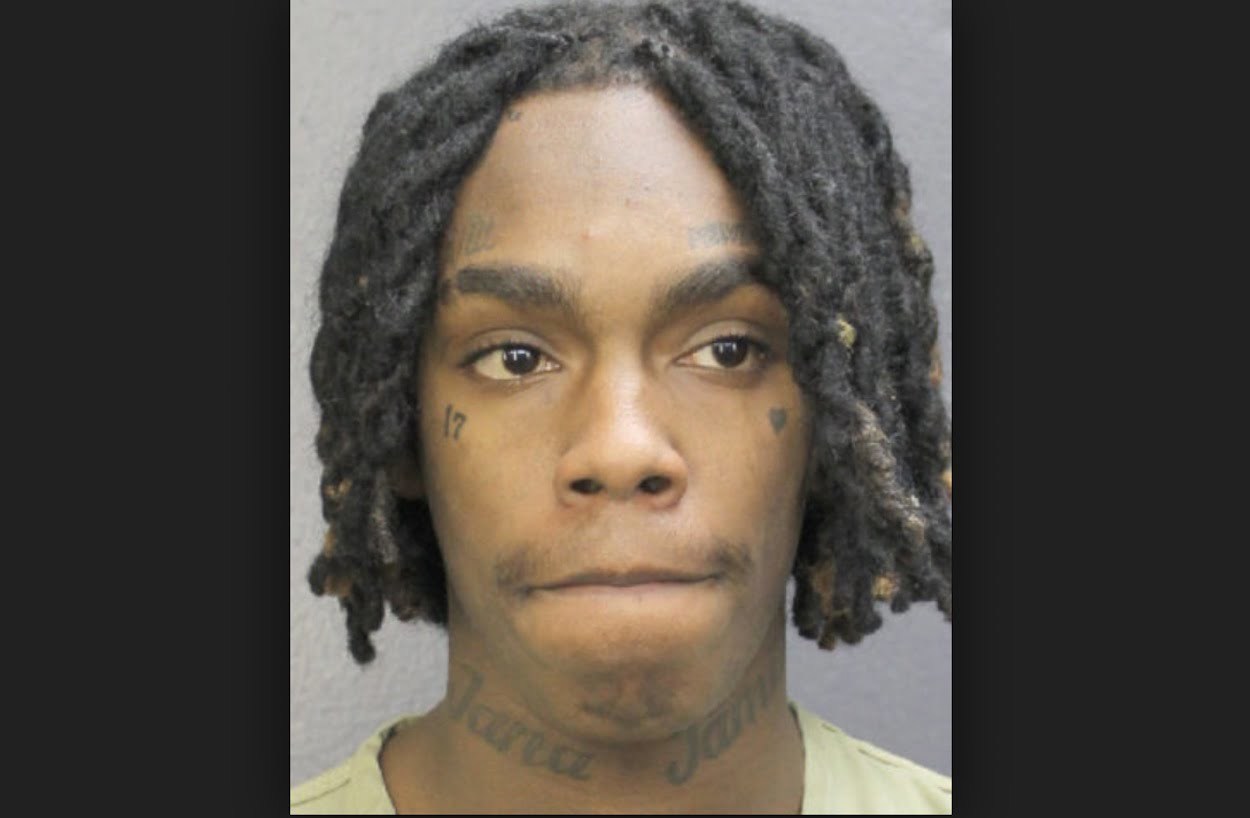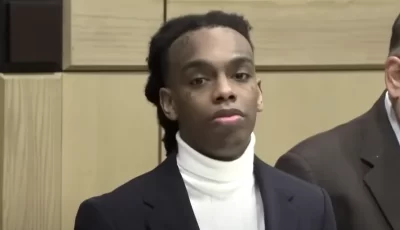The trial of platinum-selling recording artist Jamell Demons, also known as YNW Melly, 24, began on Monday, with the prosecution and defense giving opening statements and the state examining evidence and calling several key witnesses to the stand.
The “Murder on My Mind” rapper is facing two counts of first-degree murder for the death of two of his friends, Chris Thomas, 20, also known as YNW Juvy, and Anthony Williams, 21, also known as YNW Sakchaser.
Prosecutors allege that Melly, along with another YNW member, Cortlen Henry, also known as YNW Bortlen, killed the two men by shooting them at close range on October 26, 2018, then staged their deaths as from a drive-by shooting.
YNW Melly is facing the death penalty if he is convicted by a jury panel of 12 people called a “death qualified jury,” where only 8 guilty votes are enough to send him to the needle.
Prosecution’s case
On Monday, Prosecutor Kristine Bradley put forward a strong case theory that when YNW Bortlen showed up at the Memorial Miramar Hospital at 4:35 am with his two dead friends, they had been killed long before the time he alleged.
“They are riddled with bullets and the car is full of blood,” the prosecutor says.
Bortlen tells cops that the two victims were killed due to a “drive-by”. He claims that he and the two victims alone were at a music studio hours prior, they drove home, and while coming off the highway (I-75) to go to Miramar Parkway, they were shot at.
Bortlen told cops that he did not see who shot them or see any car, and he then drove to the hospital. However, the lead prosecutor says his claim is “completely and utterly false” as detectives shut down the parkway on the highway looking for the evidence- shell casings, broken glass, tire marks, projectiles- from the scene of the drive-by, but none could be found.
Instead, the grey Jeep that Bortlen drove had 16 bullet holes, and the rearview mirrors had been shattered, leading cops to believe that Bortlen lied about the real scene of the shooting.
The prosecutors say that they also found video camera evidence from the studio showing there were four people in the car, not three as claimed by Bortlen and another group of four persons in a red Mitsubishi.
The prosecutor says police traced the cellphones of all the people in the two vehicles to cell phone towers and through traffic cameras and were able to piece together what happened and find that Bortlen lied.
“The grey jeep goes North and then proceeds to go to the actual scene of the homicide, the grey jeep goes north at 184th up to Pines Boulevard, [from there] it travels west to the Everglades where it is desolate, dark and where there are no witnesses,” prosecutor Bradley said as she also shared that at 4:02 am, Melly is seen exiting the grey vehicle at a trash facility off a dead end at Pembroke road and entering a red Mitsubishi which was with them earlier.
Bradley points out that evidence by crime scene investigators shows ballistic on the passenger to the driver’s side and from the rear to the front of the vehicle, while autopsy results suggest that the men were killed from “inside the vehicle from the rear driver’s side passenger seat going out towards the passenger side”.
Autopsy report
As for how the victims died, Williams died immediately from a shot at the back of his head where the bullet exited at the top of his head, causing the front passenger window to blow out. Williams died due to a shot to his cheek, Bradley said, adding that the autopsy result showed that the men had been killed long before they were brought to the hospital.
Gunshot residue was also found in the car, and one spent shell in the vehicle, leading prosecutors to conclude a gun was fired in the car.
Cell phone tracking data from Williams, Thomas, and Melly’s phones a month later showed them at a nearby tower at 4:02 am leading cops to find eight (8) 40-caliber spent casings. The murder weapon was never recovered.
As to what tied Melly to the killings? He made a Facetime video at the location to his girlfriend at 4:42, telling her he was in a drive-by and that he believed two victims were dead, and he allegedly owned up to the killing, the prosecutor claims.
G-Shine Blood Gang
The lead prosecutor also claimed that evidence showed Melly taking the oath and being initiated in the G-Shine Blood Sect two days before his friends’ killing, raising questions as to whether he killed them to be initiated into the gang.
Other evidence is that the rapper confessed to murdering his friends after reports surfaced about the drive-by shooting. One person checking on him using Snapchat asked, “Yo, homie. You good? Let me know something.”
Prosecutor Bradley said that Melly admitted to the crime- “I did that. Shh,” he responded.
Defense case
Melly’s lawyer, Defense attorney David A. Howard said the state could not prove Melly’s guilt beyond a reasonable doubt.
He also shared that Melly had been close to the victims, who were his best friends, and he had “no reason,” and it “doesn’t make sense” as to why he would kill his “best friends.”
“Prosecutors are given great power, endless resources to perform their mission of pursuing justice, but that’s not what occurred here,” Howard said. “What they will bring you is a case that is riddled with reasonable doubt, that is founded on an incompetent and incomplete investigation and exercised poor judgment at every turn. The state cannot prove beyond a reasonable doubt the allegations they have made, and there’s a reason for that,” Howard said.
Howard also slammed law enforcement, whom he accused of having tunnel vision and targeting Melly because he was a rising star. According to him, the investigating officer did not take further steps to investigate other leads and potential suspects who were not tracked down.
“If you are involved in prosecuting a star, then you become a star.”
He also questioned whether the case was investigated or fabricated.
“There’s a difference between cases that are investigated and cases that are fabricated. When a case is investigated, the state uses all its resources – its investigators, its experts, and all its energy – to identify leads and run them to ground. When a case is fabricated, first a target is chosen and then the state uses all its resources – its investigators, its experts, and its energy – to run that target into the ground. That’s what occurred here,” he said.
As for the reason why cops would target Melly, Howard says that cops received leads that were ignored, which include that YNW Bortlen had been found with gunshot residue on his person while Melly had none.
“When he shows up, he shows up with a change of clothing, gunpowder evidence on his hands evidencing he had discharged the firearm and he lies. He lies about where the incident occurred, how it occurred and he lies about not having a phone,” Howard says, adding that the police failed to search Bortlen’s place to find any conclusive evidence to see if he had shot the victims.






